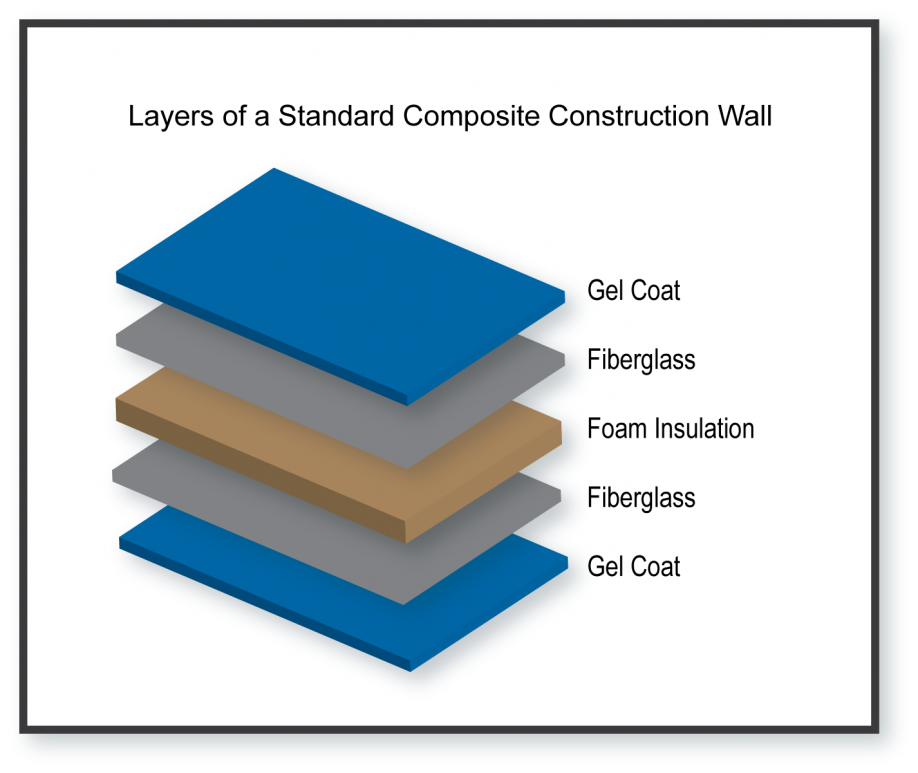Discovering the Uses and Advantages of Recycled Composites in Modern Industries
The amalgamation of recycled products with innovative composite innovations provides an encouraging opportunity for improving sustainability, durability, and cost-efficiency throughout various sectors. As sectors seek innovative remedies to resolve environmental worries and improve operational efficiencies, the unification of recycled composites arises as an engaging alternative.
Environmental Advantages of Recycled Compounds
The application of recycled composites in contemporary markets uses substantial ecological advantages, adding to the reduction of waste and the preservation of natural deposits. By incorporating recycled composites into manufacturing procedures, industries can lower their dependence on virgin products, consequently reducing the amount of waste produced and the energy required for removal and manufacturing. This change towards utilizing recycled composites helps in drawing away products from landfills, minimizing the concern on waste management systems, and reducing greenhouse gas discharges connected with conventional manufacturing techniques.
In addition, the use of recycled composites advertises the preservation of natural sources such as lumber, minerals, and water, which are frequently depleted via the extraction and processing of raw products (composites). By extending the life-span of products through recycling, sectors can assist preserve ecological communities and biodiversity by reducing the need for new sources. Generally, the fostering of recycled compounds in modern industries plays an important role in promoting sustainability and reducing the ecological impact of production procedures
Improved Toughness in Item Manufacturing
With an emphasis on durability and robustness, including recycled compounds right into item manufacturing procedures improves durability and sustainability. By making use of recycled compounds, makers can create products that are not just solid however also immune to deterioration, making them optimal for lasting usage in different markets. The mix of various materials in recycled compounds can commonly result in improved strength and toughness compared to typical products, giving an economical service for generating durable items.
One of the crucial advantages of making use of recycled compounds in item manufacturing is the ability to customize the product buildings to satisfy certain toughness requirements. By changing the composition and manufacturing methods, producers can customize the recycled composites to stand up to extreme ecological conditions, hefty tons, or frequent use without compromising on efficiency. This versatility in design and production permits the development of highly long lasting products that maintain their stability gradually, decreasing the demand for constant substitutes and eventually contributing to an extra lasting production process.
Cost-Effectiveness and Financial Advantages
Including recycled composites right into item production not just improves resilience and sustainability however additionally offers significant cost-effectiveness and financial advantages. Utilizing recycled compounds can cause minimized product costs as recycled materials are commonly more economical than virgin materials. Additionally, recycling composite materials can reduce garbage disposal expenses and reduce the need for garbage dump space, contributing to basics total price financial savings for markets.

Technology and Style Versatility With Recycled Composites
Utilizing recycled composites in modern-day sectors offers exceptional possibilities for technology and design versatility. By incorporating recycled products right into composite manufacturing procedures, firms can press the boundaries of traditional style constraints and explore new possibilities. The adaptability of recycled compounds permits the production of intricate forms and frameworks that may not be achievable with traditional products.
Among the crucial advantages of recycled compounds is their ability to be formed into various types, providing developers the liberty to try out distinct forms and dimensions. composites. This flexibility opens up a globe of innovative possibilities, making it possible for the growth of light-weight yet long lasting products that meet the details demands of various sectors
Additionally, making use of recycled compounds promotes lasting techniques and sustains the round economic situation by decreasing waste and decreasing the ecological effect of producing processes. This emphasis on green design solutions straightens with the growing fad towards sustainability in modern markets, making recycled compounds a beneficial source for ingenious and forward-thinking firms.
Applications Throughout Different Industries
Recycled compounds discover impactful and diverse applications across a large array of sectors as a result of their unique properties and sustainability benefits. In the auto field, these products are increasingly used for manufacturing resilient and lightweight components, enhancing gas performance and minimizing carbon exhausts. The aerospace industry benefits from recycled composites in the production of airplane parts, where the materials' strength-to-weight proportion is important for making sure safety and security and efficiency. In construction, these composites are utilized for producing solid yet green building products, adding to lasting framework advancement. The sustainable energy sector uses recycled compounds in wind turbine blades Clicking Here and solar panels, using their stamina and resistance to severe environmental problems. Furthermore, the marine sector utilizes these products for manufacturing boat hulls and parts, offering enhanced toughness and rust resistance. The versatility and sustainability of recycled compounds make them beneficial across numerous markets, driving innovation and ecological stewardship. composites.
Verdict
In final thought, the application of recycled composites in modern sectors offers considerable ecological advantages, enhanced toughness in product production, cost-effectiveness, and financial benefits. Additionally, making use of recycled compounds permits for advancement and design adaptability throughout different sectors. On the whole, the adoption of recycled composites read here presents a sustainable and useful option for satisfying the demands of the sector while also decreasing ecological effect.

One of the key benefits of utilizing recycled composites in product production is the ability to customize the product properties to fulfill specific sturdiness requirements. Utilizing recycled composites can lead to reduced product costs as recycled materials are often less pricey than virgin materials. The aerospace market advantages from recycled composites in the manufacturing of airplane parts, where the materials' strength-to-weight proportion is important for ensuring safety and efficiency.